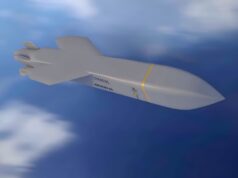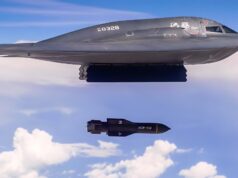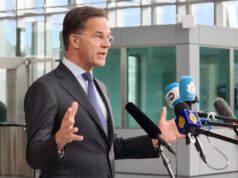Members of the House of Lords have urged the Government to take a more proactive role in strengthening defence cooperation with European allies amid broader concerns over the future of the UK’s relationship with the United States.
During a session on future defence capability on 26 March, Conservative peer Lord Clarke of Nottingham questioned whether the Government supported the long-held position of French President Emmanuel Macron that Europe’s military arm within NATO must be made stronger and more credible—eventually serving as an equal partner to the United States.
“It will take at least until the 2030s for us to achieve that desirable aim,” Lord Clarke said. He added that the UK was currently “being excluded from the arrangements in Europe for defence procurement” and not fully aligned with European defence strategies.
“No one voted for Brexit because they wanted us to cease to have defence and security alliances with our European neighbours,” he added, calling for “the closest possible integration of our defence policy with that of our European allies.”
Responding for the Government, Labour’s Lord Coaker spoke on the UK’s desire to reset and strengthen its defence and security relationship with the European Union, particularly on industrial cooperation.
“We are looking for greater collaboration and co-operation across Europe with respect to a European defence industrial strategy, and those negotiations continue,” Lord Coaker said.
“In many respects, both at European and bilateral levels, we are seeing increased co-operation, and that is essential for our European security and to demonstrate to the Americans that Europe is taking its responsibilities as seriously as it should.”
Liberal Democrat Baroness Smith of Newnham also raised concerns about the UK’s standing with its transatlantic partner. “The Vice-President and others in the United States do not seem to be taking the UK very seriously at the moment,” she observed, asking what steps were being taken to ensure the UK has sufficient military and security capabilities, regardless of US attitudes.
Lord Coaker responded by underlining the importance of maintaining a strong US-UK defence relationship despite what he called “noise” from political figures in the United States.
“I cannot stress enough how important it is that the US and UK stand together, work together and tackle common challenges together,” he said. “Let the noise from this Chamber be that we see the US-UK relationship as absolutely fundamental, and we will do all that we can to maintain it.”














The UK could have ten armoured divisions and a dozen carrier strike groups and JD Vance would discount it as a token force from some random European country that hasn’t fought a war in 40 years. There is no way to placate JD Vance on anything as he lives in his own reality bubble and all he does is click bate trolling. As the US Vice President he has a similar level of power and influence to the Whitehouse janitor in the administration. He is hated by MAGA he is hated by establishment republicans and he is hated by everyone else in America. He has one of the worst approval ratings in history of any US politician.
His political career will be over at 44 once Trump is gone.
Wishful thinking. You couldn’t be more wrong.
https://m.economictimes.com/news/international/us/jd-vance-sets-a-dubious-record-heres-what-a-new-poll-says-about-us-vice-president/articleshow/119315706.cms
I am making a good salary from home $4580-$5240/week , which is amazing under a year ago I was jobless in a horrible economy. I thank God every day I was blessed with these instructions and now its my duty to pay it forward and share it with Everyone,
Here is I started_______ 𝐖𝐖𝐖.𝐖𝐎𝐑𝐊𝐒𝐓𝐀𝐑𝟏.𝐂𝐎𝐌
Getting paid Every month more than $25,000 by doing very simple Online job from home.i m doing this job in my part time i have earned and received $25861 last month .I am now a good Online earner and earns enough cash for my needs. Every person can get this Online job.follow details on this website…!
Go Here——➤ 𝗪𝘄𝘄.𝗪𝗼𝗿𝗸𝘀𝗣𝗿𝗼𝗳𝗶𝘁𝟳.𝗖𝗼𝗺
I look forward to voting for Vance in the 2028 primaries.
Dream on. Vance is key to the hispanic vote; first and generation immigrants – catholics ( some 25% population) with traditional family values who have achieved ‘ the American dream’. They support Trumps policies on immigration and border controls. Meanwhile Trump himself gets the support of the evangelicals ( another 25%) with his anti-woke policies and he gets the disaffected heavy industrial heartlands with his tariff policies. The tariff policies might backfire, but if they succeed in bringing manufacturing plants to the US Vance will be the next POTUS.
Unfortunately all tariffs do is stifle trade and economic growth.. if Trump had focused his tariffs on the second world and China he may have got away with it.. starting a trade war with, China, Europe, Uk and the western pacific economies as well as Canada and South America.. utter madness.
Shady Vance has a record of flip-flopping whichever way that power and influence can be found. For example, he’s on record saying that #45 is a fascist like Hitler, yet was happy to join the ticket as VP in 24. His contribution to recent White House events shows deep incompetence with statesmanship and diplomacy. Not to mention incompetence as SecDef breaching operational security on a commercial not secured message platform.
He’s available to take the blame when #45 really screws up and moves below his core 26% approval rating. He knows it so has to pursue loyalty signals at every turn. No matter how stupid it makes him look. Three day visit to Greenland turned into 3 hour visit to US base, because nobody could be found to enable a photo call. Literally not welcome by anyone 🇬🇱.
As true as it may be for the UK, the simple fact of officially stating this in the current context does not qualify the UK as a reliable partner for Europe.
“Let the noise from this Chamber be that we see the US-UK relationship as absolutely fundamental, and we will do all that we can to maintain it.”
Europeans should commit to Europe first and not seek their glory in an unstable relationship for the sake of… I don’t even know why.
Yes if it’s so crucial that we can’t even consider the possibility of a world without it then perhaps they should explain why.
As the relationship is purely threatened by US domestic politics based on a uniformed electorate there is nothing we can do to maintain it short of paying for better schools in Alabama.
The UK simply needs to broaden is choice of partners and the EU along with the CANZUK countries is the only alternative.
As long as you’re ( France) are happy to carry them, as Germany won’t deploy a single soldier anywhere.
I would counter your opinion with this, the UK and Fance can and do work together very well in military terms, if you wish to put a wedge in that relationship and pivot towards your EU friends, then you better radically increase your defence spending, because apart from a small contribution from the plucky Danes, no one else in the EU will follow you into the fight.
Agreed, ignore the stupid politicos, UK and France are on the same page regarding military thought process! Same with the Dutch and to a degree the Danish lads! All can fight well, not afraid to push the limits and not afraid to take losses! Many others in Europe mmmmmmmmmm not sure! However one group of new and up for it members are the Baltic states, true that’s through necessity but it’s there 👍
Now they are off the fence the fins can be added to that, if there was ever a bunch willing to fight to the last beer and bullet it’s the fins.
Airborne,
Hi! Your estimate of the Nordic countries’ and Poland’s capabilities? Always believed the Finns and the Poles would prove to be formidable in a real contest.
In reality a relationship with the US is important.. the UK as usual is being the pragmatic power in the room focused on global geopolitics.. Europe needs a wider geostrategic view otherwise it will look into itself and in doing so become a victim not the global leader it should be. Germany is simply not capable of doing this.. France can but gets to obsessed with EU navel gazing and is having a bit of an identity crisis to be honest.
In reality unless Europe actually accepts that both British and France need to be supported to do what they are good at which is play geopolitics on the world stage the Europe will fade and become a 21c slightly richer version of Africa..
Because global geopolitics is not a game of bureaucratic dancing.. it’s a game of cut and thrust that needs verve and to be a little bit seat of the pants sometimes and or to put your moral compass in a box.. the EU as a whole cannot do that.
Every time we show willing to cooperate with Europe over defence it comes with conditions like access to British waters for the French trawler fleet.
You’re confusing ‘Europe’ with the ‘EU’…
Not the same.
So someone who is a fully paid up mouthpiece for the EU thinks the UK should have become a slave state of the EU again. What a surprise! I for one do not want to see a single British life expended to expand the EU further to the East.
Tick.
Agreed
We were never a slave state to the EU to begin with. We had alot more power than people think.
The UK gave huge concessions to the EU for almost nothing in return.
Our economy was stronger, more investment, more funding for science and ironically had more control of our borders.
The British counted for nothing in the E.U. as people saw.
Absolutely! All the talk of European (not EU) unity, which included Norway, Turkey, and the UK, was fine until Macron thought he could capitalise on events by demanding access for the French fishing fleet, excluding the Turkish and UK defence industries, so the tens of billions of extra funding from the EU would be spent in France. It was this sort of one-sided backstabbing that I hated within the EU. Unity one moment, disunity if we can get one over you!
Usual drivel from Brexitards 🤡💩
Where are your sunlit uplands?
At least now you get to blame Labour instead of your own stupidity 🤣
Ha! Last I checked, the UK was the dominant power in Europe!
And yet again, another idiot who can’t differentiate between ‘Europe’ and the ‘EU’…. Do you have the same problem with ‘America’ and ‘USA’???
What is more important to Europeans: Defence or putting one over on the British?
Fish
Given that a British court has accepted it as proven to a criminal burden of proof that the whole leave thing was illegally funded by Russian money, they will be the same thing until we are back in. The sooner the better please.
Appropriate diversification of UK defence industrial strategy to include selective joint ventures w/ appropriate European partners, would seem to be a wise and prudent course. Diversification should prove as favorable at risk reduction in the defence realm as in investing. However, there will remain carveouts for the duration of the foreseeable future (e.g. AUKUS Pillar I, Trident, etc.)
We should certainly continue with AUKUS however I am very much favouring a longer term exit from Trident. If a nuclear deterrent is worth having then it’s worth spending the small amount more to ensure it’s 100% independent. I don’t think relying on a foreign nation for something like SLBM maintenance was ever a great idea. It was necessary during the Cold War but not today.
The total cost of the UK deterrent factoring in boats, facilities and warheads is around £50 billion. An SLBM program like M51 cost France around £6billion. It very much seems to me a worth while investment given an uncertain future and the geopolitical and strategic value of such a weapon system.
@FormerUSAF – The UK’s challenge lies in its natural geopolitical symmetry with the Anglosphere — the US, Canada, Australia, and New Zealand — rather than with continental Europe. These five nations share a common legal heritage, similar military doctrine, intelligence frameworks (Five Eyes), and, crucially, a willingness to act when strategic red lines are crossed. That level of trust and interoperability isn’t easily replicated with most European nations.
Only a handful of European states — Norway, Denmark, the Netherlands — have shown a serious willingness to invest in credible defence and back political commitments with action. Poland and the Baltic states deserve credit for going “all-in” on defence, prioritising capability over provenance, and training their forces accordingly.
In contrast, Germany and Italy remain unreliable strategic partners. Germany talks a good game but struggles with follow-through. Italy is distracted by domestic politics and dependent on NATO for real deterrence. France is a special case — still grappling with a centuries-old naval and military inferiority complex post-Trafalgar and Waterloo, and determined never to be sidelined again as it was in 1940. That legacy shapes French defence behaviour to this day.
French strategic culture is transactional and opportunistic. Recent moves to undercut UK-led initiatives — such as the attempt to derail Britain’s network of marine reserves under the guise of fishing rights — reflect a broader pattern. Paris sees weakening UK influence as a path to strengthening its own position in European defence and securing more work for its domestic industry.
Ultimately, while joint ventures with select European partners may make tactical sense in areas of shared interest, the UK’s long-term strategic alignment still lies with the Anglosphere. That’s where the trust, doctrine, and political will to act are most closely aligned..
Good post 👍
Spot on post.
I would add that making efforts to work with Japan and Sweden also seems to be a sensible move for the U.K. as they also require high quality equipment for their military and have a track record of providing just that.
Whilst the continents big two are undoubtedly France and Germany it does feel like Poland is developing quickly and we have historical links to them so definitely a country we should be minded to collaborate with.
As for the Anglosphere I think we do need to recognise and respect how these nations have developed their own identity and relationships with other countries most notably the US largely from WW2. Whilst we have much in common to sell them military equipment (or buy, or collaborate) requires us to see them as equals and to extent it feels with AUKUS, Type 26 and E7 we and our colonial cousins have managed to come together in a way that reflects our historical connections but no longer largely reliant on them. A subtle change but nonetheless important.
Add Scandinavia and Japan… geography, capability, technology sitting outside of heavy French / German influence.
The US shift away from Europe was coming with or without Trump. The US federal government debt on 6 March 2025 was $36.56 trillion. Historians have a simple way of working out when Empires fall apart – when they spend more money on servicing their debt than on their military. The US has already passed that point. So, Europe needs to pay its own way, and where possible work together more effectively. But, right now, European self-reliance still feels like a lot of talk.
The shift from Europe to Asia started with Obama and has been the policy of every president since.
@Tomartyr You are correct. Obama’s “Pivot to Asia” (later rebranded the “Rebalance to Asia”) was a strategic shift in US foreign policy during his presidency, particularly from 2011 onward. The idea was simple: the 21st century would be shaped in the Asia-Pacific, not the Middle East, so the US needed to reallocate diplomatic, economic, and military resources accordingly.
Key Drivers:
1. China’s Rise – As China became more assertive (particularly in the South China Sea), the US wanted to reassure allies and counterbalance Beijing’s growing influence without direct confrontation.
2. Economic Opportunity – Asia was becoming the world’s growth engine. The US aimed to lock in trade leadership through deals like the Trans-Pacific Partnership (TPP).
3. War Fatigue – After a decade of war in Iraq and Afghanistan, the US wanted to shift from reactive military engagements to proactive strategic positioning.
Core Elements:
• Military – Redeployment of forces: more naval assets in the Pacific, rotational deployments in Australia, closer ties with Japan, South Korea, and the Philippines.
• Diplomacy – Strengthened regional alliances, participation in ASEAN forums, and closer engagement with Vietnam, India, and others wary of Chinese dominance.
• Economics – Pushed for the TPP to set trade rules on America’s terms (China was excluded).
Why It Faltered:
• The Middle East kept pulling the US back in (e.g. Syria, ISIS).
• China wasn’t deterred; it doubled down militarily and economically.
• Trump later pulled the US out of the TPP, which undermined American credibility in the region.
In short: the pivot was a recognition of Asia’s rising importance, especially as a counterbalance to China. But execution was patchy, and events elsewhere kept distracting Washington.
As for the EU – leave OUR sandeels alone!
TM,
Hmmm…very interesting observation/hypothsis re debt service, had never before encountered it. 🤔👍
Airborne,
Hi! Your estimate of the Nordic countries’ and Poland’s capabilities? Always believed the Finns and the Poles would prove to be formidable in a real contest.
Both have direct experience in living memory of the aggression of the terrorist state by invasion or occupation and a settled consensus of never again.
A modest professional core and national service are supplemented by the reserve of almost all men of fighting age in Finland. Only a deluded dictator would try their luck. Their quick accession to NATO was enabled by long term defence investment.
Looking at reports of Polish military spending it’s clear that they plan to go in hard with modern equipment. The Polish War Memorial in West London is a reminder of the determined contribution that the Poles made in WW2. Legend has it that Polish pilots had to be disciplined to return to base, not attack the enemy beyond their fuel range..
Swedish Airforce is already deployed to Poland for Air Policing duties. The Danes were in Afghan taking proportionally the most severe losses. Norway has modern equipment and a long excellence in Arctic Warfare.
Don’t mess with the Vikings would be my advice…
Hehe
So one of the dilettantes wants to ally with bunch of other dilettantes that do not even a simple and low GDP ratio – which is full of holes – can’t comply with…
Is it now that UK will get out of anti anti-personnel mine treaty like Poland and Baltics did? – i noticed how that was not a posted here… or about cluster bombs?
And no “moral” posturing now against the Poles?
Europe sees that This US is unreliable. Germany and UK won’t tolerate that. France will say CDG Told you so.
Europeans must take the initiative in European NATO command to send the American staff home and lead for the interests of all European people.
There can be no influence for a country that will not uphold Article 5, especially no membership veto for USA.
They said they won’t support Article 5 so European NATO countries will take that duty and decide what security guarantees will be given to Ukraine.
Europe already started with Joint Expeditionary Force and Advanced Forward Presence.
🇸🇪🇳🇴🇩🇰🇫🇮🇪🇪🇱🇻🇱🇹🇳🇱🇬🇧🇩🇪
Slava Ukraine 🇺🇦
Slava Heroyam 🇺🇦
#WeAreNATO #StrongerTogether
#vpdfo #FDJT